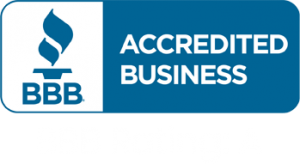Tax Preparation
Tax preparation includes all federal, state, and local tax returns depending on which returns you need to file. Some individuals opt to prepare these returns on their own. In general, however, individuals and businesses work with a professional tax preparer for a fair fee.
According to IRS information from returns filed, 52.9% of taxpayers used paid preparers for their tax returns. These preparers make sure you comply with federal and state tax codes. They minimize your tax burden. Here’s an overview of what they do:
- Reviewing and analyzing the taxpayer’s financial and tax concerns
- Making taxation recommendations based on each taxpayer’s concerns
- Building a sound strategy that helps the taxpayer maximize their tax returns
Your chosen tax preparer will take the time to learn your financial information and other personal information related to your tax returns. These include your income, social security numbers, and if applicable, marriage and family life. So, hire someone you trust.
Innovative Tax Relief provides trusted tax preparation services. Our IRS enrolled agents are licensed to practice in all 50 states. The IRS trusts our tax preparation solutions, so you can, too.
Choosing a Tax Preparer You Can Trust
There are many types of professional tax preparers who can help you file income tax returns. These include attorneys, certified public accountants (CPA), and IRS enrolled agents. Any of these individuals can help you with a variety of tax-related responsibilities, including:
- Preparing and filing your income tax return
- Assisting you in filling out your general tax forms
- Defending you with the IRS for audits and tax court issues
However, keep in mind that the extent of your tax preparer’s capabilities depends on their credentials and whether they have representation rights.
All paid tax preparers must have a preparer tax identification number (PTIN) issued by the IRS. Additional requirements, such as a state license and an electronic filing identification number, are required for IRS enrolled agents.
The IRS requires preparers to be an enrolled agent, an attorney, or a CPA to have representation rights. Meanwhile, the following states require an additional license for your preparer to operate in the location:
- California
- Connecticut
- Illinois
- Maryland
- Nevada
- New York
- Oregon
Nevertheless, it’s important for you to be careful when choosing a tax preparer. This prevents you from getting hurt financially. Here are some tips to remember:
- For enrolled agents, you may verify their status on the IRS website.
- For CPAs, you may check with the State Board of Accountancy.
- For attorneys, you may check with the State Bar Association.
- Avoid preparers who boast about larger refunds than their competitors.
- Avoid preparers who base their service fees on a percentage of your refund.
- Prepare your taxpayer’s records and receipts — meticulous preparers will check them.
- Review your tax return before signing it, even when you’re working with a trusted preparer.
- Always check whether your paid preparer signs your returns and includes their PTIN on the file.
At Innovative Tax Relief, you don’t have to stress over choosing a tax return preparer. Our tax preparation services are trusted by the IRS. You can, too.
Electronic Tax Filing (E-Filing)
The IRS offers electronic filling options for individuals, businesses, and other taxpayer audiences. Innovative Tax Relief is an authorized provider of IRS e-file — an electronic filing program that prepares, transmits, and processes e-filed tax returns.
Many software packages and service providers offer free electronic filing of federal and state tax returns for tax preparation clients. And for an option called Transmit-Only Return, you may electronically file a tax return that you prepared yourself.
Either way, you need to have a valid tax identification number to qualify for an electronic tax filing with the IRS. This means you should have a Social Security Number (SSN) or an Individual Taxpayer Identification Number (ITIN) ready.
The IRS typically processes your tax returns within three weeks of receiving your e-file. It could even be faster if you choose to have the refund directly deposited into your checking or savings account.
Filing Tax Returns by Mail
Although the IRS doesn’t mail out tax packages anymore, you can still file paper tax returns by mail. The processing time is longer, though. And there’s a greater chance of error while data entry technicians enter your data into the IRS computer system.
However, if you’re more comfortable with this process than an IRS e-file, remember to check the filing location. IRS filing locations might have changed, so check whether you have the correct address before mailing your return.
The IRS typically processes your case within six to eight weeks upon receiving your tax returns. Staffing issues may extend the process several weeks longer. So while you still can mail paper tax returns, the IRS recommends filing electronically.
Tax Return Filing Deadlines
Generally speaking, tax returns are usually due on April 15 of the following calendar year. So if you’re filing your taxes for the tax year 2021, you have until April 15, 2022 to file it. But tax preparers would recommend starting as early as possible to avoid late filing.
If you file your tax return electronically, it’s considered filed on time as long as the electronic postmark shows that it is filed within your deadline. The host system automatically adjusts to the date and time in your time zone.
If you file your tax returns by mail, it’s considered on time as long as the envelope is addressed correctly and postmarked by the filing due date. If you opt for a paper tax return, work with a timely tax preparation company to make sure it’s mailed on time.
Similarly, if you use a private delivery service to send your IRS tax return, the postmark date is whatever the delivery service marks on the mailing label.
Late Filing of Tax Returns
The IRS might issue a failure-to-file penalty and interest if you don’t complete your tax preparation or file your tax return within their deadlines. If you know you can’t file them on time, Innovative Tax Relief suggests filing an extension by April 15 to avoid penalties and interest.
Also, keep in mind that if you’re due for a refund but you haven’t filed a tax return, you’re required to file the return within three years of its initial due date. Otherwise, you might not be able to obtain the refund.
Make Tax Preparations Easier
Innovative Tax Relief is happy to assist you with tax preparation. Our IRS enrolled agents are devoted to helping you file returns and maximize your refund.
Contact us when you encounter any tax preparation issues. Our team also aids you when you have unfiled back tax returns or when there’s an IRS collection action against you. Schedule a free consultation with us today.


